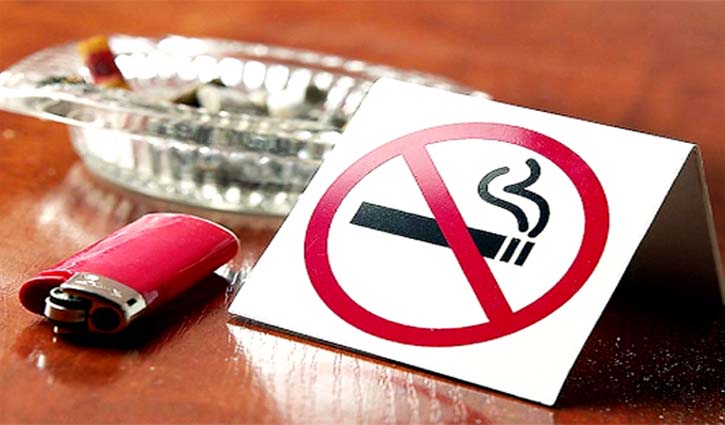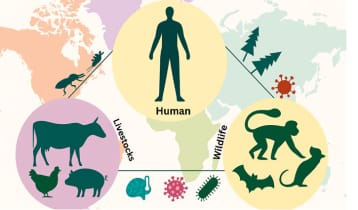TIs discreetly disregarding Tobacco Control Law
4 || risingbd.com

By Md. Alim Al Razi: Tobacco Industries (TIs) are discreetly disregarding Tobacco Control Law, sometimes they are just overlooking, sometimes influence over the formulation of government policies and most of the time are lingering the formulation processes of the policies for their own interest.
The consumption of tobacco products is mainly controlled by Smoking and Usage of Tobacco Products (Control) Act 2005 with an amended in 2013. In addition to that the control rule was published by Health and Family Welfare Ministry to regulate the laws more effectively. Besides, Narcotics Control Act-1990, Children Act-2013, Bangladesh Labour Act-2006, Constitution of Bangladesh and Railway Act 1890 are also supposed to contribute the tobacco control measurements. Moreover, according to the Article 18 and 18A of Section 2 the Constitution of Bangladesh also articulated the importance to stop tobacco usage.
Other important laws also affect the usage of tobacco in the country and global aspect. The law was remarkably associated with the Framework Convention on Tobacco Control (FCTC) of World Health Organization (WHO) in 10 May, 2004. As a party of FCTC, WHO provides technical support to Bangladesh for the implementation of FCTC systematically monitoring adult tobacco use both smoking and smokeless and tracking key tobacco indicators. As a nationally representative household survey, it was implemented by National Tobacco Control Cell (NTCC) and Ministry of Health and Family Welfare of Bangladesh. This global standard of survey GATS was first conducted in 2009 and repeated in 2017. Obviously GATS enhances country’s capacities to design, implement and evaluate tobacco control programs and to fulfill their obligations under FCTC. WHO also incorporates MPOWER, a technical package of six evidence-based demand reduction measures covering the areas of Monitoring tobacco use and prevention policies; Protecting people from tobacco; Offer help to quit tobacco use; Warning the dangers of tobacco; Enforcing bans on tobacco advertising, promotion & sponsorship and Raising the taxes on tobacco.
Progresses: Policy Changes-In the comparison factsheet of GATS 2017 revealed that Bangladesh has implemented many policies and programmatic initiatives since 2009 and brought amendment of the ‘Smoking and Usage of Tobacco Products (Control) Act 2005’ in 2013 and framing the new rules in 2015 to supersede the 2006 rules effective from May 2013 brings the country closer to compliance with WHO-FCTC. The law bans of all forms of tobacco advertising, sponsorship and promotion; prohibits tobacco smoking in all public transportation & places and prohibits sale of tobacco products to or by the people younger than 18 years of age.
Bangladesh introduced pictorial health warning on all tobacco packages covering at least 50 per cent of package surface area. It increases tobacco ad valorem tax in each year and in 2017 taxes as a share of cigarettes prices averaged 76 per cent. Besides, anti-tobacco campaigns are ongoing in different types of media and improving cessation services through awareness and capacity building programmes.
Present Situation: Definitely government of Bangladesh deserves the right to get thanks and acknowledgement for to regulate the use, production, and consumption of tobacco products in a various way to minimize its harm. According to the factsheet of GATS 2017, tobacco use prevalence significantly decreased among adults from 43.3 per cent in 2009 to 35.3 per cent in 2017. Exposure to second hand smoke in home and public places significantly declined. Smokers who were advised to quit by health care providers increased notably from 52.9 per cent in 2009 to 65.8 per cent in 2017. In addition to that the percentage of current smokers and smokeless users who thought of quitting tobacco because of pictorial health warnings increased remarkably from 49.8 per cent in 2009 and 55.9 per cent in 2017.
The exposure tobacco products in last 30 days significantly decreased from 48.7 per cent in 2009 and 39.6 per cent in 2017. And the current manufactured cigarette expenditure per month increased significantly from 662.6 BDT in 2009 that increased at 1077.8 BDT in 2017. All those facts and figures give us inspiration and light of hope to change the situation.
Backdrop Situation: But still the reality is quite different from the law violations are prevailing in everywhere. Actually, the laws are exists but there seems inadequate measurement and initiatives especially from the government of Bangladesh to implement of those laws accordingly.
Public Place Smoking: According to section 4 of the Tobacco Control Act, smoking in public places is strongly prohibited. Unfortunately, it is seen that smoker uses tobacco as if all places in Bangladesh are smoking zone except very view places. There is very poor progression of putting notice to prohibit people from smoking as per to Section 8 of the Law.
Secondhand Smoking: Still secondhand smoking a major concern in Bangladesh as public place smoking is not regulated properly. As a result, smokeless men, women especially children and the pregnant woman get seriously harmed while walking through the public places.
Tobacco Packaging and Labeling: About 50 per cent health warning on the top of the body packets are being placed according to the new amendment. Very few tobacco industries truly follow and obey this rule while British American Tobacco with other local brand fearlessly overlooks to ensure packaging and labeling procedures accordingly. Other smokeless tobacco products still remain outside to follow the rule.
Tobacco Advertising, Promotion and Sponsorship: Though the tobacco advertising, promotion and sponsorship in all print and electronic media, including at the point-of-sale. Free and discounted tobacco products also are prohibited. But TIs are taking different strategies to advertise, promote and sponsorship of tobacco products. It is observed that decoration of retail seller’s shop by cigarette packet, stickers, t-shirt, gas lighter branding different name of cigarette along with using many other tactics are still ongoing. They also use logos of their industry in the movies and songs of electronic media, creating developing advertisement, organizing competition like Battle of Minds etc. Abive all, cigarette companies also use the logo in the delivery vehicles and pay money to the salesman for using the empty boxes for promoting their brands too.
Conclusion: Tobacco industries know that one way or another the protest will emerge from the opposition of civil society. Presently they are focusing on the underdeveloped and developing countries for their market holding somehow the execution of law and regulation for their own interest. Regardless of its shape or form, tobacco industry always designed to thwart attempts to curtail the TC Law disregarding negative consequences and impact in social, economic, environmental and health areas. Silently, they disregard the existing tobacco control measurements of the government and FCTC too discreetly and sometimes as aggressively that should be stopped immediately.
As a partner organization of Bloomberg Initiatives –CTFK, SUPRO feels the utter need to continue massive movement and campaign from all sectors and professions to control tobacco uses. Sushasoner Jonny Procharavizan-SUPRO is a nationwide grassroots network of NGOs and CSO envisioning a participatory democratic society based on human rights principles that adhere equity and justice for all together raising the voices from grassroots network of 600 plus NGOs and CSOs in 45 districts in Bangladesh. It believes that it is possible to fight different TIs activating people’s collective efforts together adopting with comprehensive strategies. Otherwise, we will be failed to present Tobacco Free Bangladesh by 2040 as per the declaration of the Prime Minister of Bangladesh Sheikh Hasina. And we would not be able to provide a safe, secured and healthy nation to our upcoming generation.
The writer is Media Manager, SUPRO
risingbd.com























